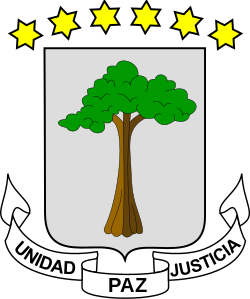 |
|---|

The Constitution of Equatorial Guinea (Spanish : Ley Fundamental de Guinea Ecuatorial) is the basic document of that country. It was approved in 1991 and amended in 1995. [1] In 2011, a referendum was held on a series of constitutional amendments. [2]